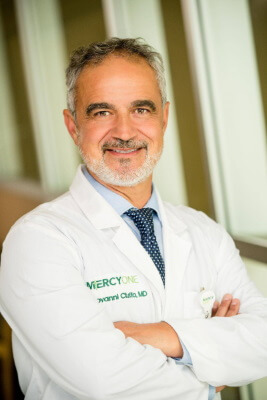
Heart disease in men and women remains the leading cause of death globally, impacting millions of lives each year. However, what often goes unnoticed is the distinct nature of this ailment in men and women. While heart disease affects both genders, the manifestation, symptoms, and outcomes can significantly differ between them. Here at Minimally Invasive and Bloodless Heart Surgery with Dr. Ciuffo, we understand these distinctions are crucial for early detection, effective treatment, and, ultimately, saving lives.
1. Symptoms Disguised
One of the most striking differences when it comes to heart disease in men versus women lies in the way heart disease presents itself. Men typically experience classic symptoms like chest pain or pressure, radiating down the left arm. However, women may not exhibit these telltale signs. Instead, they might experience more subtle symptoms such as shortness of breath, nausea, extreme fatigue, or discomfort in the neck, jaw, or back. These differences often lead to misdiagnosis or delayed treatment in women, putting them at a higher risk of complications.
2. Risk Factors At Play
Several risk factors contribute to the development of heart disease, but their impact can vary between genders. While factors like high blood pressure, high cholesterol, obesity, and smoking affect both men and women, certain conditions like diabetes, metabolic syndrome, and mental stress tend to pose a higher risk for women. Hormonal changes, particularly during menopause, also play a significant role, altering women’s cardiovascular health.
3. Unique Challenges In Diagnosis
Diagnosing heart disease in women poses unique challenges. Traditional diagnostic tests like electrocardiograms (ECG) and stress tests may not always detect heart issues in women due to variations in their symptoms and heart physiology. Moreover, women are more likely to have microvascular dysfunction, where the smaller arteries supplying blood to the heart become impaired, often escaping detection through standard tests.
4. Treatment Disparities
Even in treatment, disparities exist when it comes to heart disease in men versus women. Historically, clinical trials predominantly included male participants, leading to a lack of understanding about how treatments might affect women differently. Consequently, the effectiveness of certain medications and procedures in women remains uncertain. Additionally, societal factors and gender biases can influence healthcare providers’ decisions, potentially impacting the quality of care women receive.
5. Age Matters
Heart disease in men tends to strike at a younger age compared to women. However, the risk for women increases significantly after menopause, narrowing the age gap. Furthermore, women tend to live longer, increasing their lifetime risk of developing heart disease. These age-related nuances highlight the importance of tailored preventive strategies and regular screenings for both genders across all age groups.
6. Emotional And Psychological Impact
Beyond the physical toll, heart disease takes a significant emotional and psychological toll on individuals and their families. Women, in particular, often face additional stressors related to caregiving roles and societal expectations, which can exacerbate the impact of heart disease on their mental well-being. Recognizing and addressing these psychosocial factors are essential for holistic management and recovery.
Contact Minimally Invasive Heart Surgery Today
Heart disease doesn’t discriminate based on gender, yet understanding its nuances in men and women is vital for effective prevention and treatment strategies. If you have more questions about heart disease in men versus women, don’t hesitate to contact us at our office at (702) 333-7200 to speak with a team member. We’d be more than happy to provide you with the information and resources you need to take control of your condition and lead life to the fullest. For additional information about our practice or heart disease, please visit Nevada Heart and Vascular or University Medical Center.

